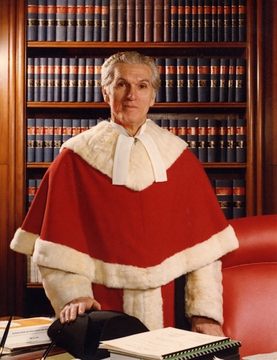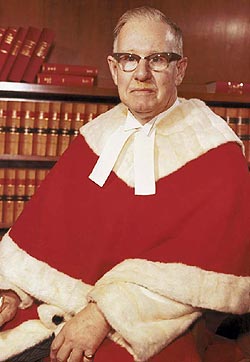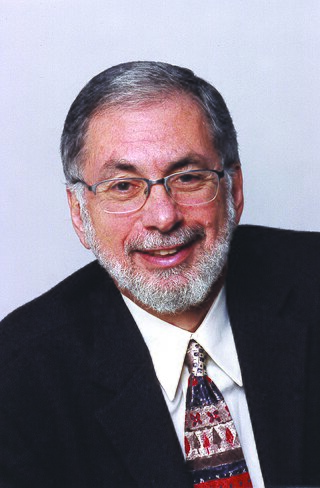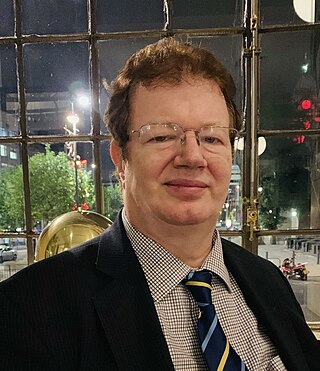Related Research Articles

Osgoode Hall Law School, commonly shortened to Osgoode, is the law school of York University in Toronto, Ontario, Canada.

Bora Laskin was a Canadian jurist who served as the 14th chief justice of Canada from 1973 to 1984. Laskin was appointed a puisne justice of the Supreme Court in 1970, and served on the Ontario Court of Appeal from 1965 to 1970. Before he was named to the bench, Laskin worked as a lawyer and in academia.

Wishart Flett Spence, was a puisne justice of the Supreme Court of Canada.
Walter Surma Tarnopolsky was a Canadian judge, legal scholar, and pioneer in the development of human rights law and civil liberties in Canada.

Harry William Arthurs is a Canadian lawyer, academic, and academic administrator. He is one of Canada's leading labour law scholars.

Cecil Augustus Wright, often called Caesar Wright, was a Canadian jurist and law professor. He was among the first law professors to import the Harvard case method into Canadian legal education. He was also known for his confrontational and aggressive personality.
Precarious work is a term that critics use to describe non-standard or temporary employment that may be poorly paid, insecure, unprotected, and unable to support a household. From this perspective, globalization, the shift from the manufacturing sector to the service sector, and the spread of information technology have created a new economy which demands flexibility in the workplace, resulting in the decline of the standard employment relationship, particularly for women. The characterization of temporary work as "precarious" is disputed by some scholars and entrepreneurs who see these changes as positive for individual workers.
Barbara G. Taylor is a Canadian-born historian based in the United Kingdom, specialising in the Enlightenment, gender studies and the history of subjectivity. She is Professor of Humanities at Queen Mary, University of London.
Paul C. Weiler was the Henry J. Friendly Professor of Law, at Harvard Law School and a widely published expert in labour law, sports law and tort. In 2016, he was appointed an Officer of the Order of Canada.

Michael D. Watkins is a Canadian-born author of books on leadership and negotiation. He is the Professor of Leadership and Organizational Change at the International Institute for Management Development in Switzerland.
Waldemar Heckel is a Canadian historian.
Jodi Ann Byrd is an American indigenous academic. They are an associate professor of Literatures in English at Cornell University, where they also hold an affiliation with the American Studies Program. Their research applies critical theory to indigenous studies and governance, science and technology studies, game studies, indigenous feminism and indigenous sexualities. They also possess research interests in American Indian Studies, Post-Colonial Studies, Digital Media, Theory & Criticism.
Elizabeth McLeay is a New Zealand political scientist. She is currently an Emeritus Professor at Victoria University of Wellington.
Maria Fleming Tymoczko is a scholar of comparative literature who has written about translation, medieval Celtic literature, and modern Irish literature including the works of James Joyce. She is a professor of comparative literature at the University of Massachusetts Amherst, and the former president of the Celtic Studies Association of North America. She is known for her calls for a more international and multicultural perspective on translation.

Christoph Hartmut Bluth is a professor of international relations and security at the University of Bradford.
Lesley B. Cormack is a Canadian historian of science and academic administrator specializing in the history of mathematics and of geography. She is the Deputy Vice-Chancellor and Principal of the University of British Columbia's Okanagan Campus.
Maya Shatzmiller is a historian whose scholarship focusses on the economic history of the Muslim world. She became a Fellow of the Royal Society of Canada in 2003. She received her PhD from the University of Provence in 1973, and was a visiting scholar at the Institute for Advanced Study in 1992. Shatzmiller is a professor of history at the University of Western Ontario.
The McRuer commission, officially the Royal Commission Inquiry into Civil Rights, was a royal commission conducted in Ontario, Canada, headed by James Chalmers McRuer.
Charles Bruce Sissons, FRSC was a Canadian historian.
Alpheus Thomas Mason was an American legal scholar and biographer. He wrote several biographies of justices of the Supreme Court of the United States, including Louis Brandeis, Harlan F. Stone, and William Howard Taft.
References
- ↑ "Fudge Judy, Professor". McMaster Faculty of Social Sciences. Retrieved October 13, 2020.
- ↑ "Judy Fudge". Osgoode Society for Canadian Legal History . Retrieved October 13, 2020.
- ↑ Savage, Larry (November 23, 2019). "Dr. Judy Fudge, 2019 recipient of the Bora Laskin Award". Canadian Association for Work & Labour Studies. Retrieved October 13, 2020.
- ↑ Reviews of Labour before the Law:
- Craven, Paul (2002). "Review of Labour before the Law". The Canadian Historical Review . 83 (1): 135–136. ISSN 1710-1093.
- High, Steven (2001). Urban History Review. 30 (1): 68. doi: 10.7202/1015944ar . ISSN 0703-0428.
{{cite journal}}: CS1 maint: untitled periodical (link) - McCallum, Todd (2004). Labour/Le Travail . 53: 257–259. doi:10.2307/25149453. JSTOR 25149453.
{{cite journal}}: CS1 maint: untitled periodical (link) - Laperrière, René (August 2001). Canadian Journal of Law and Society (in French). 16 (2): 215–221. doi:10.1017/S0829320100006876. ISSN 0829-3201. S2CID 147624823.
{{cite journal}}: CS1 maint: untitled periodical (link)
- ↑ Reviews of Precarious Work, Women, and the New Economy:
- Bernier, Jean (2007). Relations Industrielles (in French). 62 (4): 779. doi: 10.7202/016963ar . ISSN 0034-379X.
{{cite journal}}: CS1 maint: untitled periodical (link) - McCann, Deirdre (2006). "Review of Precarious Work, Women, and the New Economy". International Labour Review . 145 (3): 241–245. ProQuest 223994590.
- Bernier, Jean (2007). Relations Industrielles (in French). 62 (4): 779. doi: 10.7202/016963ar . ISSN 0034-379X.